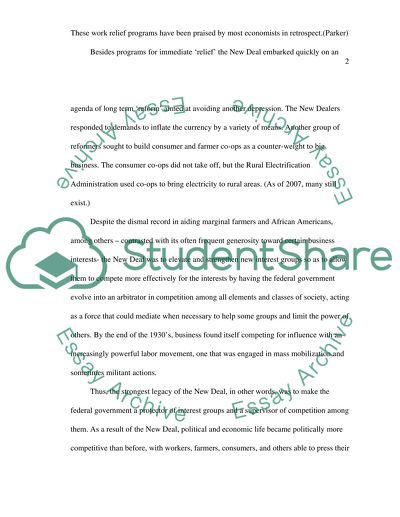Cite this document
(“The new deal and the great society Essay Example | Topics and Well Written Essays - 1000 words”, n.d.)
Retrieved from https://studentshare.org/sociology/1509591-the-new-deal-and-the-great-society
Retrieved from https://studentshare.org/sociology/1509591-the-new-deal-and-the-great-society
(The New Deal and the Great Society Essay Example | Topics and Well Written Essays - 1000 Words)
https://studentshare.org/sociology/1509591-the-new-deal-and-the-great-society.
https://studentshare.org/sociology/1509591-the-new-deal-and-the-great-society.
“The New Deal and the Great Society Essay Example | Topics and Well Written Essays - 1000 Words”, n.d. https://studentshare.org/sociology/1509591-the-new-deal-and-the-great-society.


